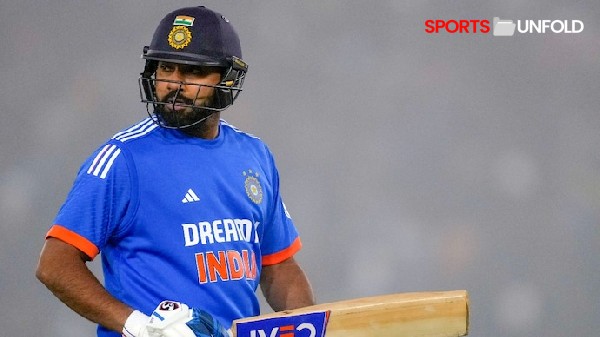The captain of India, Rohit Sharma, found himself embroiled in some controversy on Wednesday when he chose to bat in the second Super Over of the exciting third and final Twenty20 International against Afghanistan. Did Rohit Sharma violate any rules by batting against Afghanistan in the second Super Over? Following the right-handed batter’s retirement during the first Super Over, the development occurred.
During the first Super Over, which resulted in a draw, Rohit struck two sixes and scored 13 runs off of three balls. With matching scores of 16, the 36-year-old withdrew injured before the final ball, and the brilliant move enabled India to square the inaugural Super Over. At the non-striker’s end, Rinku Singh replaced Rohit and quickly scored a single.
In the second Super Over, the opener went out to bat once more and amassed 11 runs off of three balls, including a boundary and a six.
He was retired out by the regulations and could not bat again without the other captain’s permission.
Read Also :- 3 things Afghanistan has to accomplish to win the third T20I against India
Did Rohit Sharma violate any rules by batting against Afghanistan?
The playing regulations for Men’s T20Is and Super Overs set forth by the International Cricket Council (ICC) state that a batter who is removed in one Super Over will not be allowed to bat in any subsequent Super Over. Rohit Sharma wasn’t fired, though.

The three guidelines for a departing batsman in the second Super Over are as follows:
1- A batter may terminate his innings at any time when the ball is dead. Before allowing play to resume, a batsman’s retirement must be reported to the umpires.
2-If a batsman retires because of illness, injury, or any other unanticipated event, he may resume his innings. If, for whatever reason, this does not happen, this batter is to be documented as “Retired – not out”.
3 – A batsman’s innings can only be extended with permission from the opposing captain. If they withdraw for any reason not specified in paragraph 25.4.2. If the batter’s innings is not extended for any reason, he will be declared “Retired – out.”
In the thrilling contest that included two extra overs, Rohit Sharma batted three times and top-scored on each occasion. In the end, Ravi Bishnoi’s 12-run defense helped India win.
Rohit Sharma chose to bat first and destroyed the opposition. He scored 121 unbroken runs in 69 balls at a strike rate of 175+ with eight maximums and eleven boundaries.
On his more than a-year-long return to T20I cricket, the captain not only recovered from two straight ducks but also turned in a record-tying sixth T20I century. Together with Rinku Singh, he scored 190 runs to help the hosts overcome a 22/4 deficit. In the end, the Men in Blue scored 212/4 in the 20 overs that they were given.
Read Also:- India defeats Afghanistan in the third T20I

